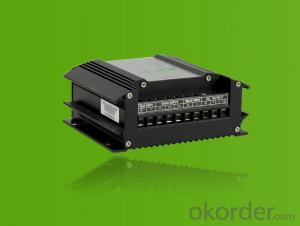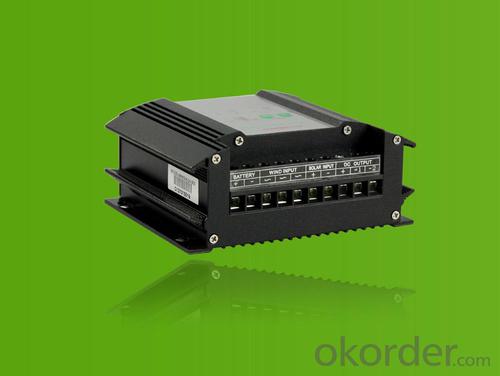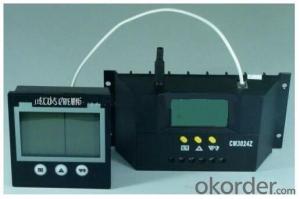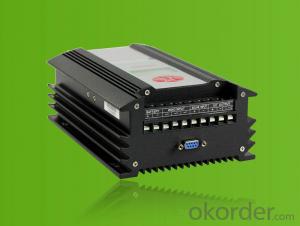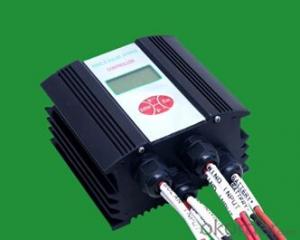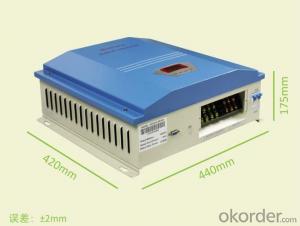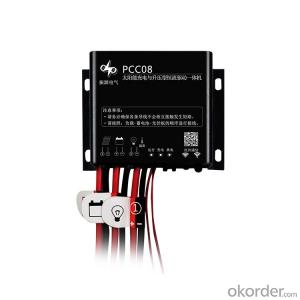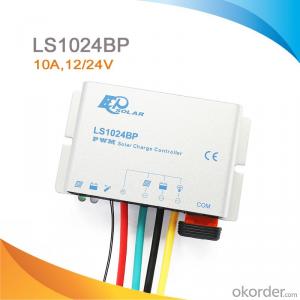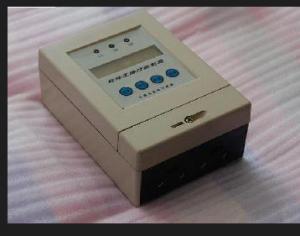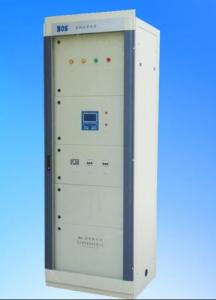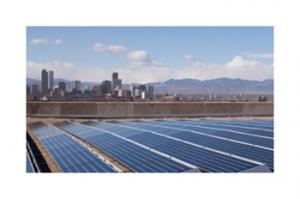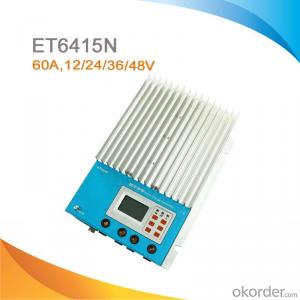Stacking Solar Charge Controllers for Economical Wind Solar Hybrid Street Light Controller
- Loading Port:
- Shanghai
- Payment Terms:
- TT or LC
- Min Order Qty:
- 10 unit
- Supply Capability:
- 10000 unit/month
OKorder Service Pledge
OKorder Financial Service
You Might Also Like
A solar inverter, or PV inverter, or Solar converter, converts the variable direct current (DC) output of a photovoltaic (PV) solar panel into a utility frequency alternating current (AC) that can be fed into a commercial electrical grid or used by a local, off-grid electrical network. It is a critical BOS–component in a photovoltaic system, allowing the use of ordinary AC-powered equipment. Solar inverters have special functions adapted for use with photovoltaic arrays, including maximum power point tracking and anti-islanding protection.
This product has high conversion efficiency, reliable quality, intelligent monitoring system and best service, which will provide you with a memorable user experience and solutions.
I. PRODUCT INTRODUCTION
The wind/solar hybrid street light controller is specially designed for high-end small-scale wind/solar hybrid system and especially suitable for wind/solar hybrid street light system and wind/solar hybrid monitoring system. It can simultaneously control wind turbine and solar panel and transform the wind and solar energy into electricity for the DC load use, with excess energy stored into batteries. Varieties of appearance and function design, which is flexible to meet the requirements of different customers.
II. PERFORMANCE FEATURES
Superior military-grade components to ensure the product stability.
Perfect protection function, thus the system has higher reliability.
LED、digits indicator for freely check and set various of status parameters.
Voltage limiting and current-limiting charge mode ensures battery in the best charging status.
Two DC Load output, light-control, time-control, constant output, and multiple output control mode selection
PWM stepless unload mode, which burn the excess power into Dump load, making the battery charging in best status.
High quality aluminum alloy appearance, with small size and good cooling effect.
III. APPLICATION AREAS
Stand alone wind/solar hybrid power station.
Stand alone domestic household wind/solar hybrid power system.
Mobile Communication base stations, expressway and other non-residential regions.
Coastal islands, remote mountainous, border posts for regions shortage of or without electricity.
Government demonstration projects, landscape lighting project, street light project etc.
IV. 12V TECHNICAL PARAMETERS
Product Model | WWS02-12-B00D | WWS03-12-B00D | WWS04-12-B00D |
Rated battery voltage | 12V | 12V | 12V |
Rated wind turbine input power | 200W | 300W | 400W |
Maximum wind turbine input powr | 300W | 450W | 600W |
Wind turbine brake current | 20A | 30A | 40A |
Rated solar input power | 100W | ||
Wind Turbine Charge Shutoff Voltage | 14.5V | ||
Wind Turbine Charge Recovery Voltage | 13.2V | ||
Battery Under Voltage Shutoff | 10.8V | ||
Battery Under Voltage Recovery | 12V | ||
Input over voltage Shutoff | 16V | ||
PV Voltage Of Light-Control On | 1V | ||
PV Voltage Of Light-Control Off | 1.6V | ||
Load 1 and Load 2 Rated Output Current | 10A | ||
Load 1 Output Mode | Light-Control On and Light-Control Off | ||
Load 2 Output Mode | Light-Control On and Time-Control 5 hours | ||
Dumpload control mode | PWM | ||
Display mode | LED digits indicator | ||
Cooling | Aluminium alloy shell radiating | ||
Protection Level | IP53(Indoor) | ||
Quiescent Current | ≤20 mA | ||
Display Parameters | Over-voltage, Over-discharge, Overload, Short-circuit, Night etc. | ||
Protection Functions | Solar reverse charge protection , Solar reverse connection protection, Battery over charge protection, Battery over discharge protection, Battery reverse connection protection, Over Load protection, Short-circuit protection, Lightning protection, Wind turbine current limiting, Wind turbine automatic brake and manual brake. | ||
Ambient Temperature | -20~+55℃ | ||
Ambient Humidity | 0~93%, without condensing | ||
Working Altitude | ≤4000m | ||
Dimensions (L x W x H) | 125×152×62mm | ||
Net Weight | 0.75kg | ||
In order to serve our customers better, our company can adjust parameters configuration according to customer’s requirement. | |||
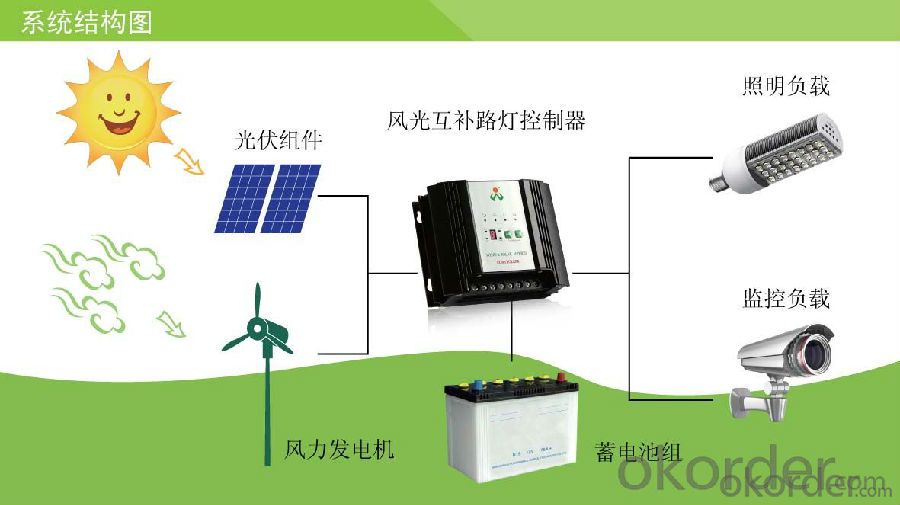
- Q: What is the role of a solar controller in preventing damage to the solar panels from environmental pollutants?
- The role of a solar controller in preventing damage to solar panels from environmental pollutants is to regulate the charging and discharging of the batteries connected to the panels. By monitoring the battery voltage, the solar controller ensures that the panels do not overcharge or over-discharge, which can lead to detrimental effects such as reduced panel lifespan and decreased efficiency. Additionally, some advanced solar controllers also feature protection mechanisms like short circuit protection and reverse polarity protection that safeguard the panels from potential damage caused by environmental pollutants or other external factors.
- Q: Can a solar controller be used with a solar-powered lighting system?
- Yes, a solar controller can be used with a solar-powered lighting system. The solar controller helps regulate and control the charging and discharging of the battery used in the lighting system, ensuring optimal performance and longevity of the system.
- Q: Are solar controllers necessary for small solar systems?
- Yes, solar controllers are necessary for small solar systems. They regulate the flow of electricity between the solar panels and the batteries, ensuring that the batteries are not overcharged or undercharged. Additionally, solar controllers help protect the batteries from damage caused by excessive voltage or current. Therefore, even for small solar systems, solar controllers are essential for efficient and safe operation.
- Q: Can a solar controller be used with solar panel carports?
- Yes, a solar controller can be used with solar panel carports. A solar controller is an essential component of a solar power system as it regulates the voltage and current from the solar panels to ensure efficient charging of batteries or powering of electrical loads. In the case of solar panel carports, a solar controller would be necessary to manage the energy production and distribution, maximizing the utilization of solar power and ensuring the longevity of the batteries used to store excess energy.
- Q: What is the maximum temperature rating for a solar controller?
- The maximum temperature rating for a solar controller typically varies depending on the specific model and manufacturer. However, most solar controllers are designed to operate within a temperature range of -10°C to 60°C (14°F to 140°F).
- Q: Can a solar controller be used with solar panels that have different angles of inclination?
- Yes, a solar controller can be used with solar panels that have different angles of inclination. The solar controller's primary function is to regulate the energy flow between the solar panels and the batteries, ensuring efficient charging and preventing overcharging. The angles of inclination of the solar panels do not directly affect the functionality of the solar controller. However, it is important to consider that panels with different angles may receive varying amounts of sunlight, which might affect the overall system performance and energy production.
- Q: What is the maximum power output a solar controller can handle?
- The maximum power output a solar controller can handle depends on its specifications and capabilities. It varies from model to model, but generally, solar controllers can handle power outputs ranging from a few hundred watts to several kilowatts.
- Q: What is the purpose of the battery state of health monitoring feature on a solar controller?
- The battery state of health monitoring feature on a solar controller serves the purpose of ensuring optimal battery performance and longevity. It enables the controller to precisely gauge and monitor the battery's health throughout time, offering valuable insights into its overall condition and capacity. Through this monitoring, the solar controller can undertake suitable measures to preserve and extend the battery's lifespan. These measures include adjusting charging and discharging parameters, preventing overcharging or deep discharge, and notifying the user of any problems that arise. By incorporating this feature, users can maximize the efficiency and dependability of their solar system while avoiding potential battery failures or degradation.
- Q: What is the maximum power capacity that a solar controller can handle?
- The maximum power capacity that a solar controller can handle depends on the specific model and manufacturer. Solar controllers are designed to regulate the flow of power from solar panels to batteries or other loads. They are typically rated in terms of their maximum current handling capacity, which is measured in amps. The maximum power capacity of a solar controller can be calculated by multiplying the maximum current rating (in amps) by the system voltage (in volts). For example, if a solar controller has a maximum current rating of 30 amps and the system voltage is 12 volts, then the maximum power capacity would be 360 watts (30 amps x 12 volts = 360 watts). It is important to choose a solar controller that can handle the maximum power capacity of your solar system. Exceeding the maximum power capacity of a solar controller can lead to overheating, reduced efficiency, or even damage to the controller. Therefore, it is recommended to consult the manufacturer's specifications or seek professional advice to ensure that the solar controller can handle the power capacity of your specific solar system.
- Q: Can a solar controller be used with solar panel ground racks?
- Yes, a solar controller can be used with solar panel ground racks. A solar controller is responsible for regulating the flow of energy from the solar panels to the batteries or electrical loads. It is not directly dependent on the type or location of the solar panel mounting system, so it can be effectively used with ground racks or any other type of solar panel mounting.
Send your message to us
Stacking Solar Charge Controllers for Economical Wind Solar Hybrid Street Light Controller
- Loading Port:
- Shanghai
- Payment Terms:
- TT or LC
- Min Order Qty:
- 10 unit
- Supply Capability:
- 10000 unit/month
OKorder Service Pledge
OKorder Financial Service
Similar products
Hot products
Hot Searches
Related keywords
